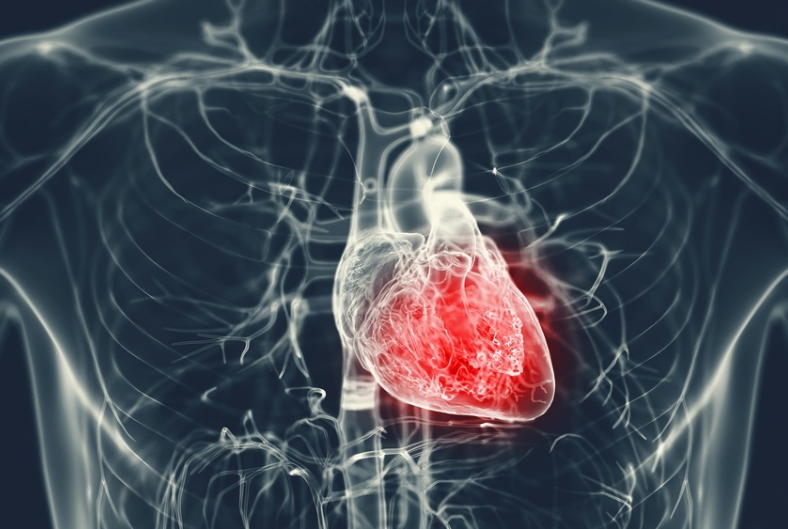Hypertensive heart disease can pose serious risks, including sudden death, if not managed properly. Recognizing early signs of heart failure and understanding causes of congestive heart failure are crucial for prevention. Symptoms of heart failure getting worse, such as worsening heart blockage symptoms or hypertensive cardiovascular disease symptoms, require immediate attention. Effective coronary artery disease treatment and strategies for living with congestive heart failure can significantly improve outcomes. It’s essential to stay vigilant about heart problems symptoms and seek medical help promptly to mitigate risks associated with hypertensive atherosclerotic cardiovascular disease.
Deciphering Hypertensive Heart Disease
Before moving into the connection between hypertensive heart disease and sudden death, it’s paramount to comprehend the nature of this condition. Hypertensive heart disease emerges when elevated blood pressure places stress on the heart and blood vessels, culminating in diverse complications that may impact heart function. Over time, the heart’s proficiency in pumping blood efficiently might diminish, leading to conditions like heart failure, coronary artery disease, and even cardiac arrhythmias.
The Nexus to Sudden Death
Sudden cardiac death, a poignant occurrence characterized by an unexpected disruption in the heart’s electrical system resulting in rapid heart failure, raises a significant concern. While hypertensive heart disease in itself may not be a direct cause of sudden death, the complications stemming from it can add to the risk factors steering toward this dire consequence.
- Arrhythmias and Cardiac Arrest: Hypertensive heart disease could catalyze the emergence of cardiac arrhythmias, irregular heart rhythms that perturb the heart’s synchronized pumping mechanism. Ventricular arrhythmias, exemplified by ventricular fibrillation, possess the potential to trigger sudden cardiac arrest, which, if not promptly addressed, can culminate in fatality within mere minutes.
- Heart Failure: Heart failure, an outcome intricately linked with hypertensive heart disease, transpires when the heart falters in pumping blood effectively. This condition can trigger the accumulation of fluids in the lungs and other organs, heightening the risk of fatal arrhythmias and ultimately, sudden death.
- Ischemic Heart Disease: The prolonged presence of hypertension can initiate the narrowing and hardening of coronary arteries, a condition identified as coronary artery disease. Diminished blood flow to the heart muscles can precipitate heart attacks, instances that at times culminate in sudden death.
- Stroke and Aneurysms: Increased blood pressure significantly amplifies the likelihood of strokes, events that bear neurological implications and, in certain cases, could trigger sudden death. Additionally, hypertension contributes to the formation of aortic aneurysms, the rupture of which can lead to fatal consequences.
- Advanced Stage Complications: As hypertensive heart disease progresses to advanced stages, the heart’s operational efficiency might drastically deteriorate. This downward spiral can trigger a sequence of events that heighten the potential of sudden death, particularly if the heart’s pumping capacity is significantly compromised.
Guardianship and Management
While the notion of hypertensive heart disease being a catalyst for sudden death is indeed alarming, it’s imperative to underscore that the majority of individuals grappling with hypertension can manage their condition efficiently through a blend of lifestyle adjustments and medical interventions. Here are pivotal strategies that can diminish the risk:
- Blood Pressure Regulation: Diligent monitoring and regulation of blood pressure, often facilitated through prescribed medications under medical guidance, can substantially mitigate the likelihood of complications.
- Adoption of Healthful Habits: Embracing a lifestyle that fosters heart health, inclusive of a well-balanced diet, regular physical activity, weight management, and prudent alcohol consumption, can play a pivotal role in managing hypertension and curtailing its potential repercussions.
- Adherence to Medication: Adhering to the prescribed medication regimen meticulously serves as a bulwark against complications, bolstering heart health.
- Routine Health Assessments: Regular consultations with healthcare professionals empower timely identification of complications, paving the way for proactive interventions.
A word from the doctor-
Recognizing heart problems symptoms and understanding early signs of heart failure are crucial steps in managing hypertensive atherosclerotic cardiovascular disease and congestive heart failure. By addressing causes of congestive heart failure and monitoring symptoms of heart failure getting worse, individuals can proactively manage their health. Effective coronary artery disease treatment plays a pivotal role in alleviating heart blockage symptoms and improving overall cardiovascular health. Living with congestive heart failure requires ongoing care and lifestyle adjustments to enhance quality of life. Awareness of hypertensive cardiovascular disease symptoms is key to early intervention and reducing the risk of complications associated with heart disease.
So, get started by contacting us right away.

